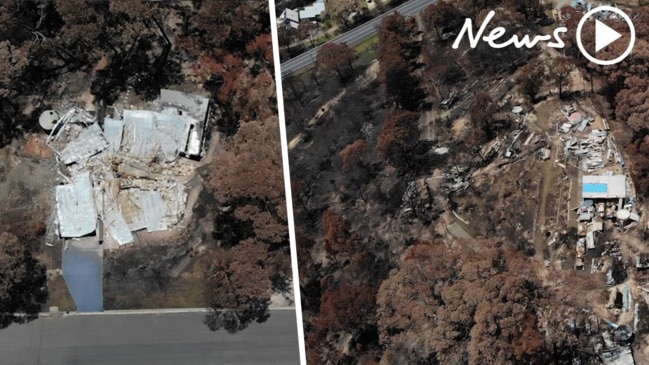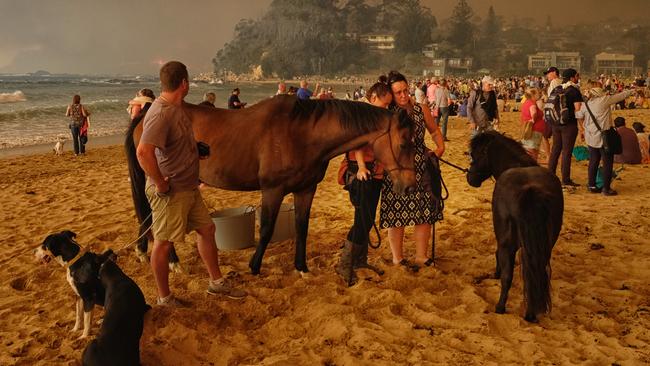Mates under fire: Surviving the long haul trauma of south coast bushfires
The “long haul” of trauma recovery is very familiar to Lifeline counsellor Stephanie Robinson. The CEO of the central Western Division of the support service has transferred from years of helping drought-stricken farmers to the fire-ravaged south coast.EXCLUSIVE PODCAST

Bushfire Support
Don't miss out on the headlines from Bushfire Support. Followed categories will be added to My News.
- The NSW town that went to hell and back
- Constance: ‘The day I almost died three times’
- Ex-Wallaby’s Aussie reaction to surviving fire
The “long haul” of trauma recovery is very familiar to Lifeline counsellor Stephanie Robinson.
The CEO of the central Western Division of the support service has transferred from years of helping drought-stricken farmers to the fire-ravaged south coast.
“I don’t think there is anybody who hasn’t been impacted down the south coast,” Ms Robinson told The Daily Telegraph and Nova’s podcast Mates Under Fire.
Listen on Apple Podcasts | Listen on Spotify


“The losses are different and everyone’s experience of the same event is different but coming together and sharing that common bond is something that will stay with them.
“I’ve spoken to people who said they had prepared for 15 years for a fire because they knew it would come one day, they might have been physically prepared for what they needed, they might have had sprinklers, masks, all this sort of stuff but nothing prepared them for emotional responses to it and that fear that was off the charts.”
Last week Rural Fire Service Commissioner Shane Fitzsimmons recounted how he believed he would never be the same after the loss of 25 lives in NSW, including six of his firefighters.
Transport Minister Andrew Constance has also opened up in the podcast series about his struggle with the trauma of fearing for his life as an inferno ripped through his hometown of Malua Bay on New Year’s Eve.

Others have said the terror won’t abate, even after rain doused the flames.
“One of the things we have found most helpful for people is normalising some of those behaviours,” Ms Robinson said.
“People can be concerned some of those reactions they are having aren’t normal. The reality is many of those reactions are really normal for an abnormal event.
They are quite expected.”
Ms Robinson said the initial period after a crisis was characterised by generosity directed at those affected which buoys communities and then gives way to a honeymoon phase.
The tough work starts after that, with trauma likely to last years.
“Fight or flight moves into endurance mode … the long haul,” she said.
“What we are craving and what we need is it to go back our normal routine. When we run for too long on that mode sheer exhaustion sets in.”

